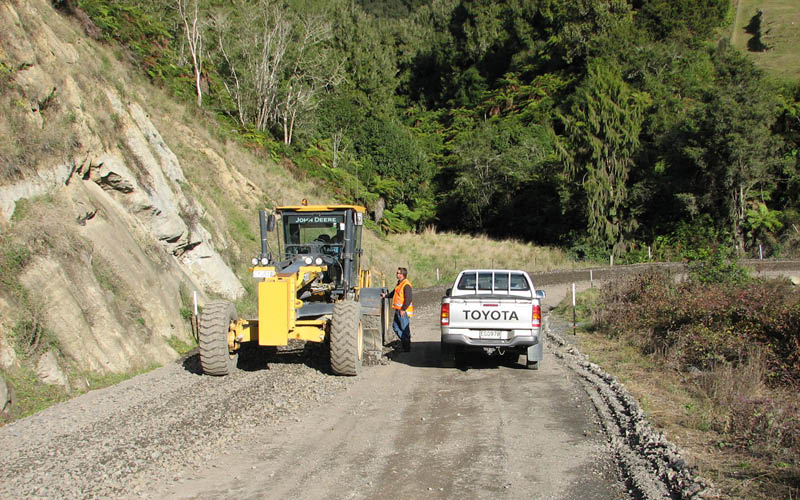Following a COVID19 enforced break Council's land transport team have resumed the community focused 'river valley meetings' with two hui in the Tawata-Kirikau-Paparoa-Te Maire Valley and the Ngakonui Valley.
Named in recognition of Ruapehu's remote rural river valley communities the meetings allow Council to report on the land transport work programme while gaining first-hand knowledge of local road conditions and any hot spots' that require urgent remedial attention.
Executive Manager Infrastructure Vini Dutra said that river valley residents are able to discuss road maintenance, contractor performance or any other roading issues important to them.
"Their input brings rural communities in as a partner at the front of the decision-making process and allows for better decisions on where to spend our limited road improvement dollars," he said.
"At this year's two hui we received a wide range of feedback from work needed on blind corners, culverts, and drop-outs, to feedback on vehicle speeds, roadside rubbish, and mobile blackspots amongst other issues.
Established 14 years ago the river valley meeting programme has become an integral part of the rural road management strategy valued by both Council and local communities.
From next year we will return to our schedule of holding three meetings per year and rotating them throughout the district with the 2024 meetings being planned for Kaitieke, Ruatiti, and Ohura."
Mr Dutra said that it was pleasing to be able to advise this year's hui that Council's Funding Assistance Rating (FAR), the co-investment level we receive from Waka Kotahi NZTA for roading projects, was being reinstated to 75% from July 2024 for the next three-year funding round (2024/27) having been dropped to 74% for the current 2022/23 financial year.
"We anticipate that a one percent lift in our FAR to 75% will mean Council will receive an additional $240,000 in subsidy in 2024/25 from Waka Kotahi NZTA and will help alleviate some financial pressures on ratepayers.
It was noted however, that while the FAR increase is very welcomed, it needs to be seen against the recent capital cost inflation in road and transport infrastructure which peaked at 19.1% per annum at the end of 2022, the largest annual increase since 1982.
Even more detailed data from Stats NZ shows that bridge construction has had the largest increase in cost since 2020, with a 39% increase between the March 2020 and June 2023 quarters which has had a significant impact on the replacement costs of the Ruapehu Rd rail over-bridge and plans for the Mangateitei Rd rail over-bridge.
The inflationary cost increases means that funds allocated for land transport projects in previous planning rounds are no longer enough requiring Council to adjust the timing for some works," he said.
Mr Dutra added that in addition to these inflationary cost pressures Council is scheduled to lose its 100% funding on the Ohakune Mountain Rd from next financial year which will now be treated as any other local road attracting the 75% FAR.
"With the work we had planned on the Ohakune Mountain Rd losing the 100% subsidy would cost around $185,000 per annum taking a 'big bite' out of the additional FAR increase.
To minimise this potential impact, we are looking to undertake as much work as possible on the Ohakune Mountain Rd over this summer before we lose its 100% subsidy from 2024/25.
These issues highlight the problems that many rural councils like Ruapehu are facing where we are constantly needing to balance the need to renew critical infrastructure against affordability.
Ideally Council would love to accelerate our land transport maintenance and renewal program but without additional co-investment from Waka Kotahi NZTA in these inflationary times this just isn't possible.
In determining our future work programme for next year's new ten-year Long Term Plan 2024/34 we are needing to undertake the difficult task of prioritising projects we want to deliver within a smaller budget envelope in real terms," he said.
*END*


